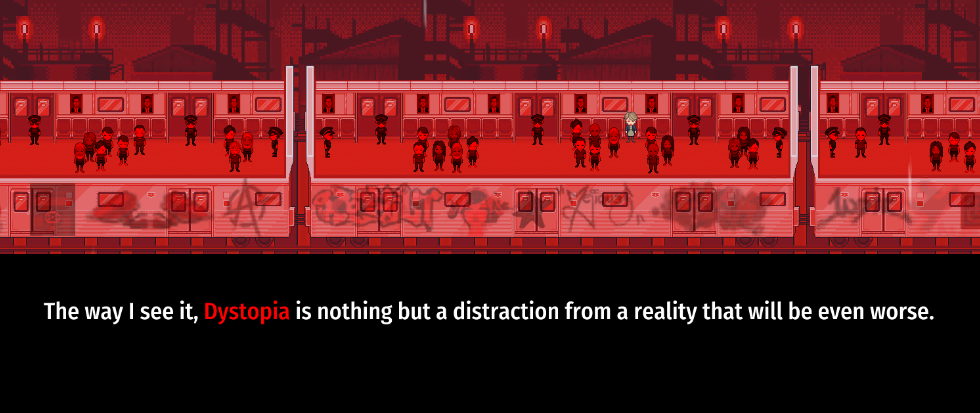
The Real Horror Behind Dimension 404’s Polybius
I’ve just started Hulu’s horror anthology Dimension 404. So far, one episode in, it’s a goofy, lighthearted affair that has its moments. I say lighthearted because it feels more Are You Afraid of the Dark than Outer Limits or Twilight Zone but that’s beside the point. However, that one episode isn’t the first one. No, I started with episode 4, “Polybius”.
Dimension 404’s “Polybius” tries to assault your senses with nostalgia. All your old friends are there, Attractive Store Employee, Surly Store Owner, Over Eager Friend, Friend Who Becomes Your Enemy, Headgear Kid, and Overbearing Parent. But the nostalgia drops into a darker layer, that outcast feeling, not sticking up for your friend, and existential horror of being “different” and finding a home far away from home. It’s a familiar tale, especially if the space you fit into in your teens was more on the fringes.
But what is the eponymous Polybius? For Dimension 404 it’s a mostly demonic game that’s the brain child of an ancient soul who offended the gods and a video game programmer. Playing it brands you until the monster claims your soul and, if its feeling feisty, horribly mangles you.
What’s odd is that except for the name and one Man in Black, the Polybius of Dimension 404 and the Polybius of myth bear little resemblance.

Legend goes that in the early 1980’s an arcade cabinet by the name of Polybius began to appear at arcades. G-men would appear every so often to examine the machine and helpless patrons would suffer nausea, disorientation, or other symptoms. Some claim that the project was an offshoot of long mythologized CIA mind control program MKUltra. It was hard to dose people with drugs, why not try to use flashing lights instead? Instead of using LSD to make victims pliable, why not subliminal messages hidden in a game? Even without the MKUltra connection claims across the internet are that anyone who played might be subject to all sorts of ill side effects.
While none of these claims can be corroborated (the games existence in general has never been authoritatively proven, Polybius is also the name of a Greek historian who urged others to extensively corroborate before recording something as history) they do have the hallmarks of techno-horror. Horror as a genre is often more an expression of societal taboos and anxieties than about representing an actual event. It resonates because there’s a tiny kernel of truth or anxiety that’s been ratcheted up to a fever pitch. Even today videogames are held at arm’s length. They’re too immersive, they make killers, they erode society, they actively make us dumber.
Conspiratorially, the US Army did have more than a small amount of involvement in videogames. 2004’s Full Spectrum Warrior was developed, in part, through the Army’s desire to test how virtual combat situations could be used in training. Ultimately, two versions were developed, one for use by the Army and one for consumers differing only aesthetically. While not brainwashing by any means it would seem that the Polybius nightmare of videogames being used as part of a military experiment became true.

Dimension 404 is a fun quirky take on the Polybius tale. But the true intrigue in the tale of a mysterious game that pierces into the player’s mind is more intriguing to me. Relatively rudimentary games of the 1980’s may not have had the processing power to produce a Manchurian candidate but perhaps we’re only closer to that reality. Every day we interact with dozens of technologies vastly more powerful than a 30-year-old arcade cabinet. Who’s to say that one of them isn’t trying to influence the way we think, act, feel, and behave? There’s the real horror.





